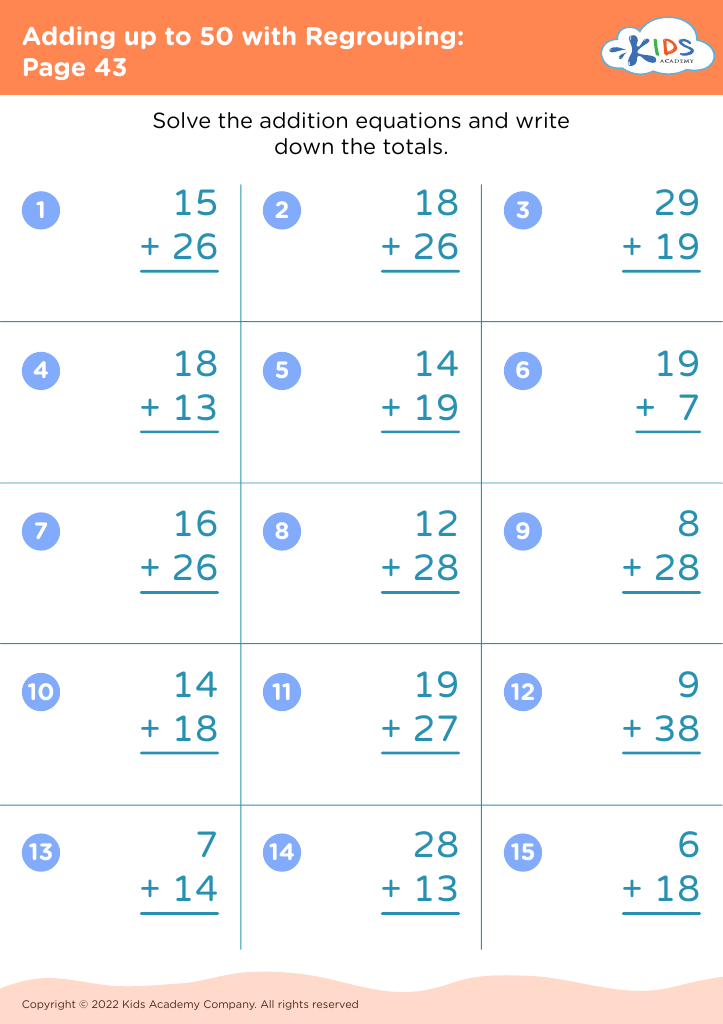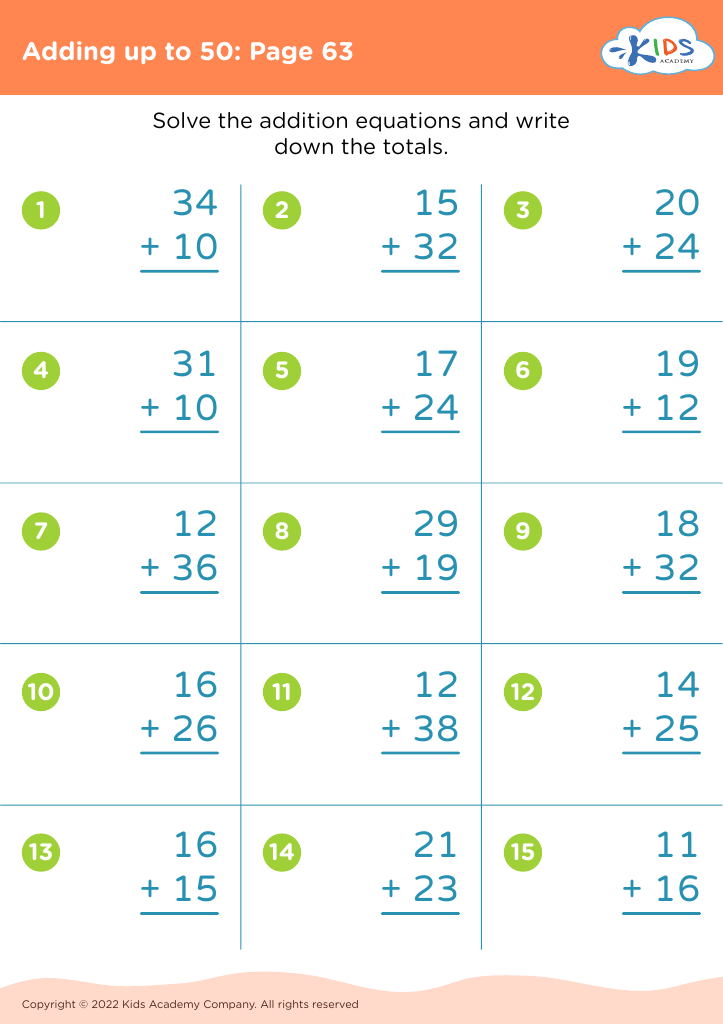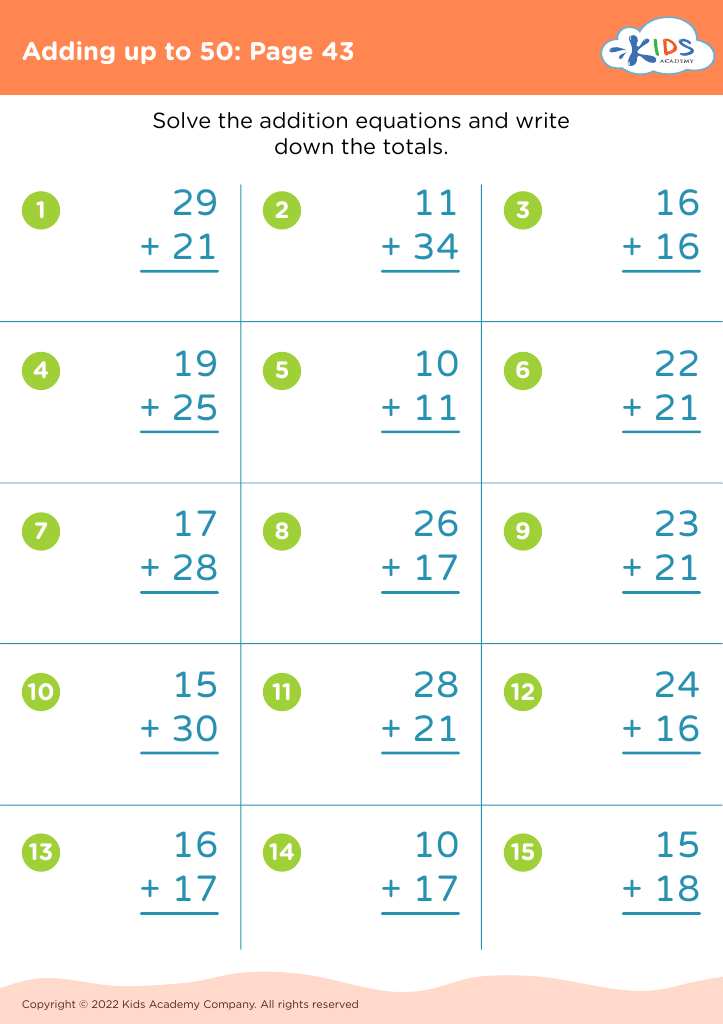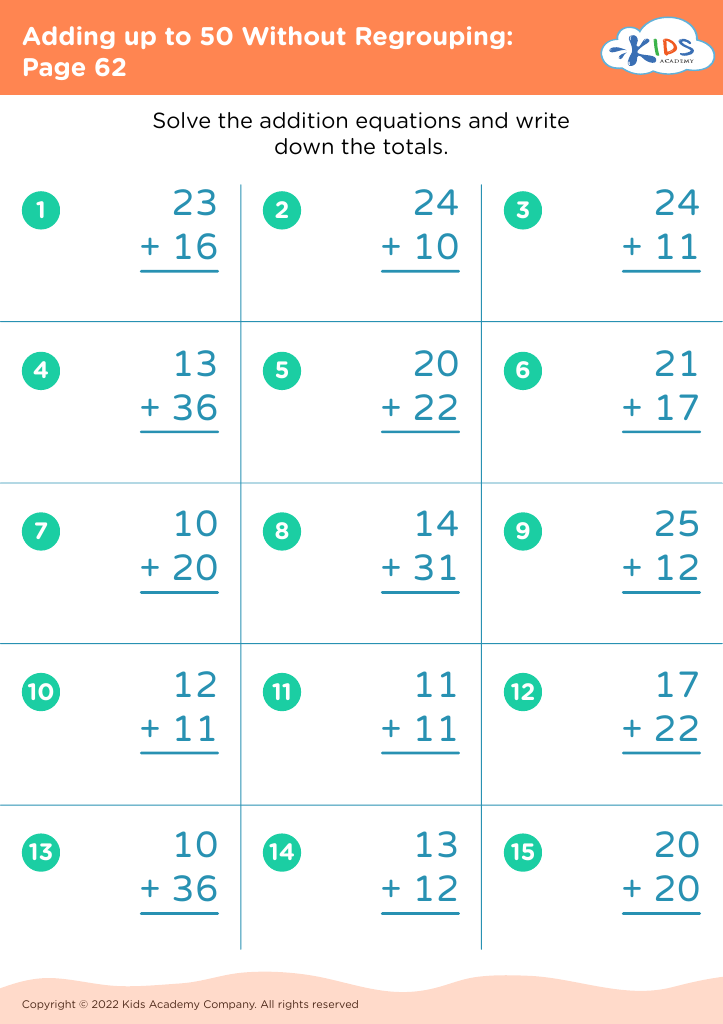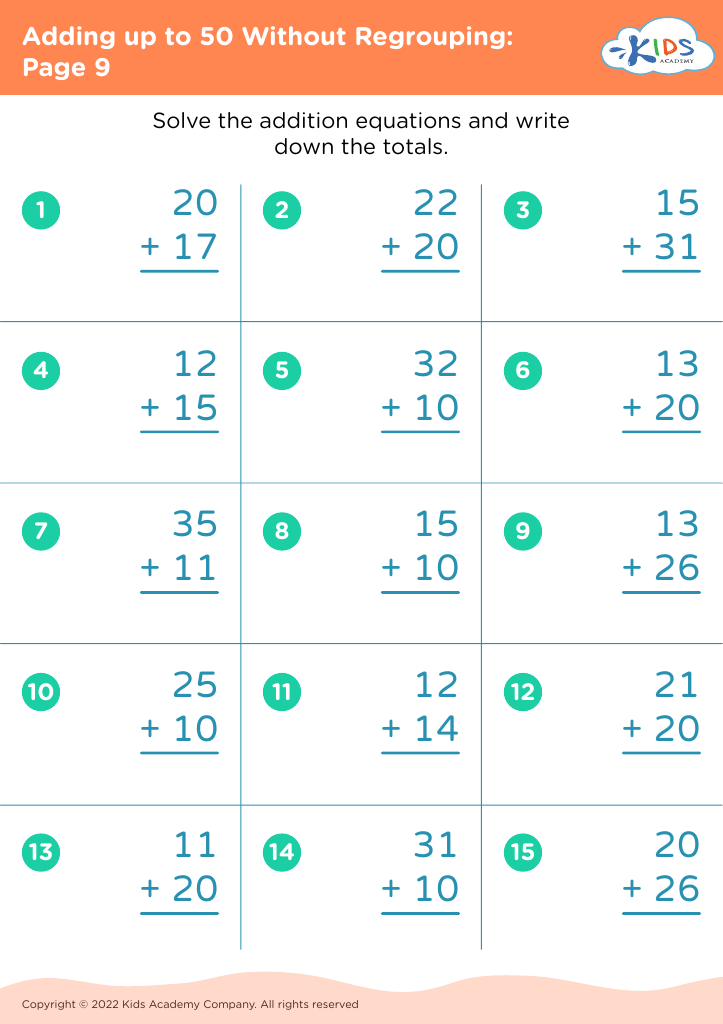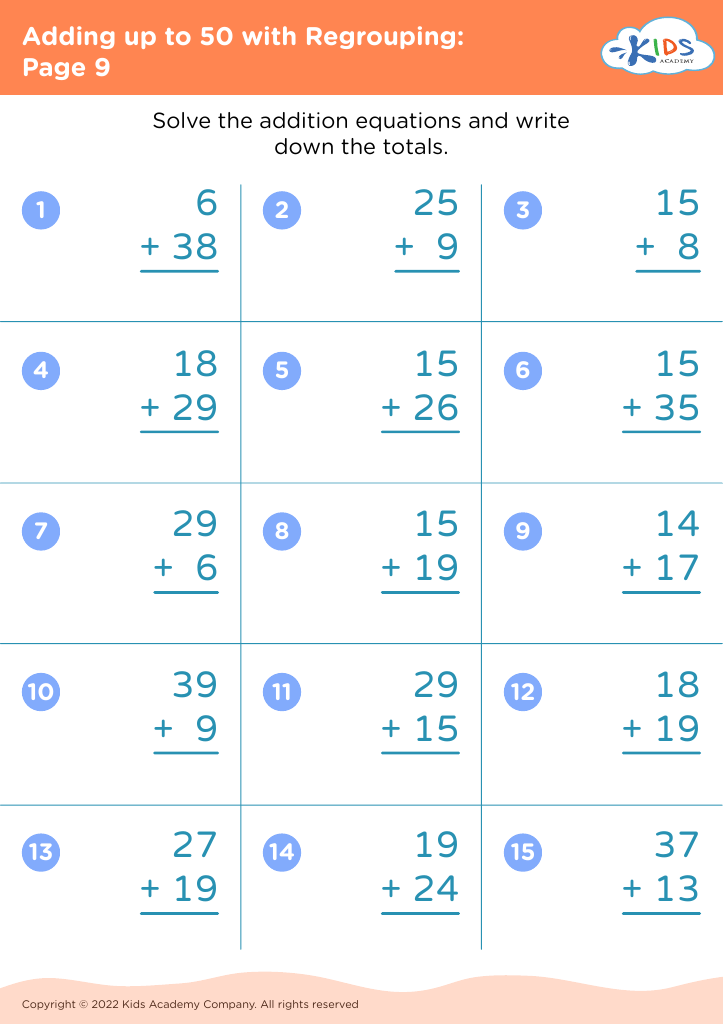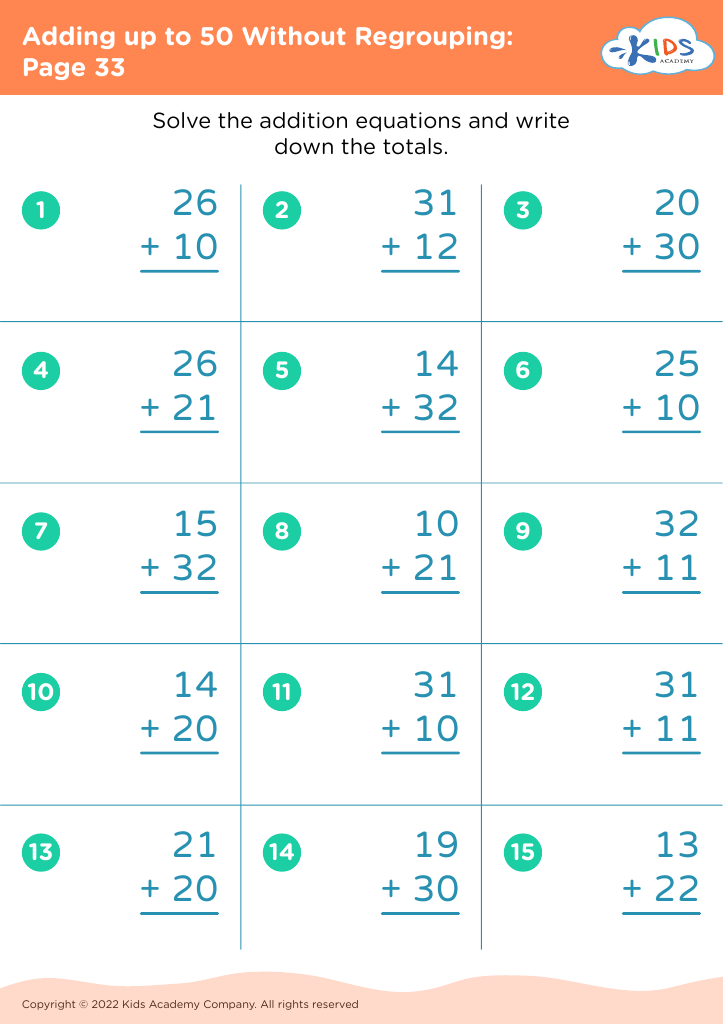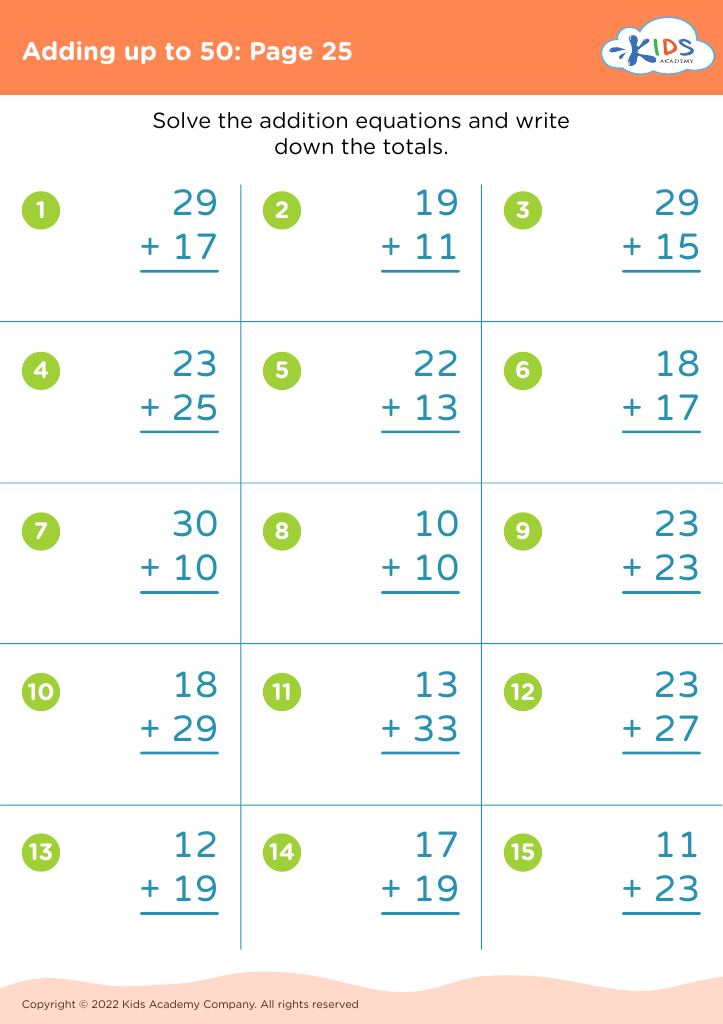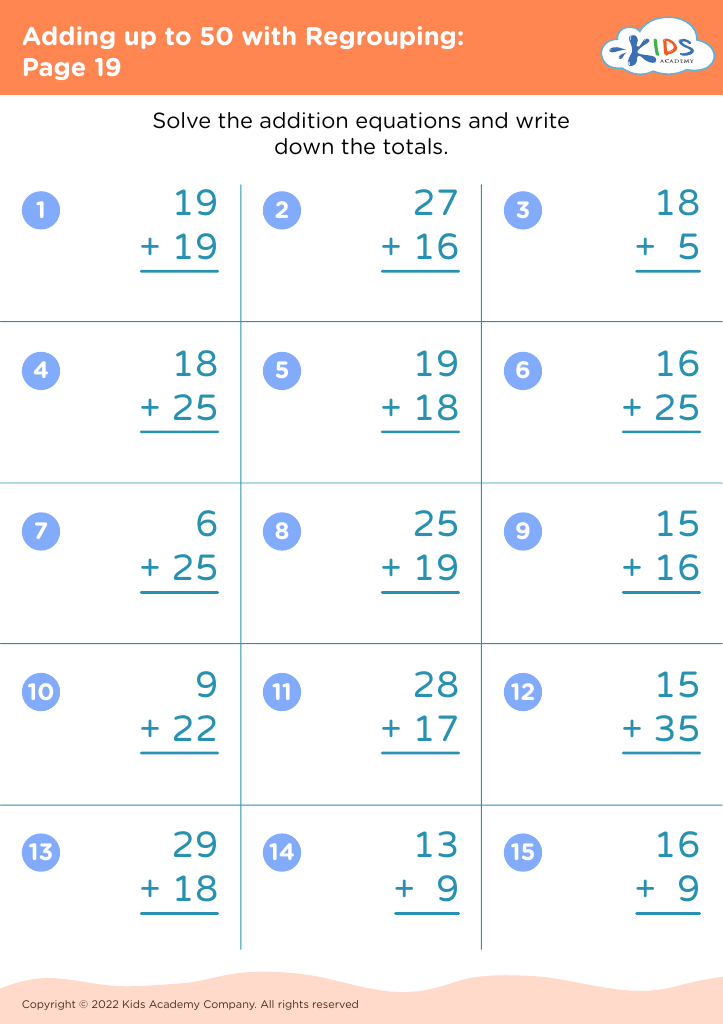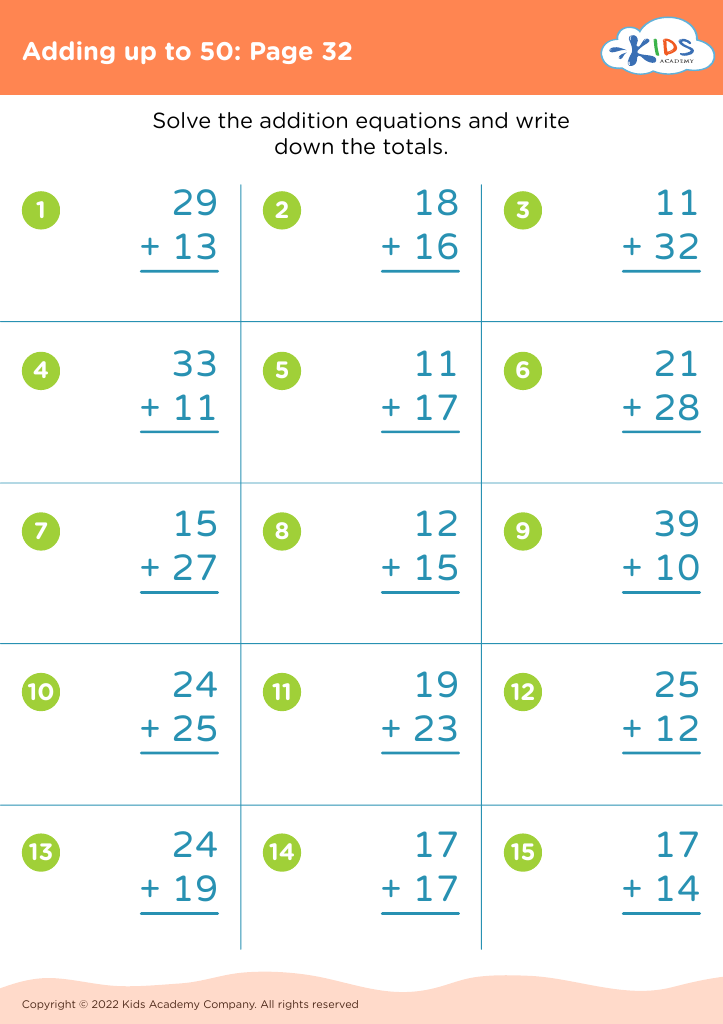Addition Practice Adding up to 50 Worksheets for Ages 7-8
16 filtered results
-
From - To
Boost your child's math skills with our engaging Addition Practice Worksheets, perfect for ages 7-8! Designed to facilitate learning, these worksheets focus on mastering addition concepts with sums up to 50. Each activity enhances essential skills and includes fun illustrations to keep students motivated. Ideal for classroom use or at-home practice, these resources foster independent learning while reinforcing foundational math concepts. Parents and teachers can track progress effortlessly, ensuring that children gain confidence in their arithmetic abilities. Help your child excel in math today with our comprehensive collection of addition practice materials that make learning enjoyable and effective!
Addition practice for ages 7-8, particularly focusing on sums up to 50, is crucial in developing foundational math skills. At this stage, children are transitioning from basic arithmetic to more complex problem-solving. Mastering addition within this range allows them to confidently handle everyday situations, such as managing money or measuring ingredients.
Additionally, consistent practice promotes numerical fluency, enabling students to perform mental math, which is invaluable for higher-level math concepts they will encounter later. When children become proficient at adding numbers up to 50, they are less likely to struggle with multiplication, division, and word problems in subsequent grades.
Moreover, integrating addition practice into daily activities strengthens a child's cognitive development and concentration skills. It fosters a positive attitude towards math by making it an enjoyable challenge rather than a tedious task. By encouraging a love for numbers, parents and teachers can nurture competence and confidence in their children's abilities.
Ultimately, the benefits extend beyond academic performance; they cultivate critical thinking skills and promote a growth mindset. Thus, parents and teachers should prioritize addition practice, as it equips children for both academic success and everyday life challenges.


